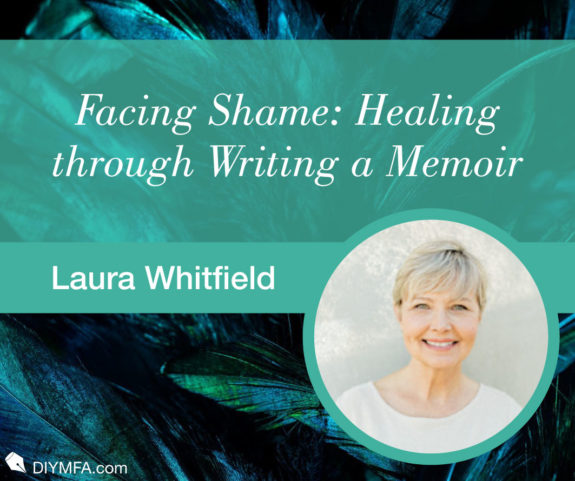People write memoirs for many different reasons—as a way to process trauma, find healing, or even take revenge on family members who may not have been as nice as they could have been. I didn’t start writing a memoir for any of those reasons. I began writing down my stories because I felt compelled to do so. I am at the stage of life as a writer when time is of the essence. It was something I couldn’t not do.
Confronting the Past
My story begins with the sudden death of my brother, Lawrence. He was twenty-three at the time; I was fourteen. He had been my True North and all at once I was catapulted into the world without a compass. Shortly after his accident, I became a Christian and found hope and a path forward.
A few years later, I graduated high school, moved away from home, and began taking a path of my own. I believed in Jesus, but following Him was a different matter. So off I went, doing my own thing.
For years. I never lost faith. I believed. I just wanted to do faith my way. And I tried, and failed, time and again.
As I wrote, my memoir began to evolve into the story of my journey back to faith. I stumbled upon dark, painful memories that I had a hard time facing. I’d tell my writing coach that I dread writing this next chapter. I’d procrastinate, take naps, read—anything to avoid writing down the awful things I’d done.
As I began to remember, I fell into shame. How on earth could I face my past, much less share it with the world?
I’d pray, and finally, type something into a blank Word document. Why am I doing this? Because I must. Still, shame persisted.
The Grip of Shame
I thought I knew a lot about shame. I’d been following Brené Brown’s shame research for several years. I’d read her book, Daring Greatly. I’d even taken her COURAGEworks class, where I spent weeks learning about shame. Brown defines it this way:
“Shame is the intensely painful feeling or experience of believing that we are flawed and therefore unworthy of love and belonging. It derives its power from being unspeakable. If we cultivate enough awareness about shame to name it and speak to it, we’ve basically cut it off at the knees. . . . Language and story bring light to shame and destroy it.” (Brown, Brené, Daring Greatly: How the Courage to Be Vulnerable Transforms the Way We Live, Love, Parent, and Lead.)
So I began to push through those painful memories, one sentence, one paragraph, one chapter, at a time.
I would finish an especially difficult passage and take a few days off.
A week later, I might stumble on another unpleasant memory and think, “I can’t write this. It’s too embarrassing. What will people think?” Then I’d remind myself that I’d survived the last terrible thing I’d written about. I was still here, sitting in my chair, slowly chipping away at my manuscript. I’d survived.
That’s when something began to change. Not only with my writing, but with me. First, I realized I’d been walking around with baggage I didn’t even know I had. Secondly, I began to see my shame for what it was: something that was keeping me small and afraid. Opening the doors of my memory released that shame and brought it to light, where it could no longer survive. In the process of discovery, shame lost its grip on me.
The Power of Story
For many years I have been a fan of author and theologian Frederick Buechner. I’d heard him interviewed once about writing his memoir, Telling Secrets, the account of his father’s suicide—and it’s fallout— when Buechner was twelve.
Quoting a meditation from his novel, The Final Beast, Buechner says, “I walked back through my memory, as though it was a long hall. I asked God to open all the closed doors, and bless whatever he found inside.”
I’m a visual writer and I was captivated by that imagery. So I did the same.
Each day as I would sit down to write, I would close my eyes and ask God to walk with me down the halls of my memory, open each closed door, and bless whatever was waiting there. When I began asking God to enter with me into my shame, that’s when it not only began to be exposed, but destroyed.
The Gift of Time
What I’d find behind those doors wasn’t always heart-rending. To my surprise, I’d often discover a beautiful memory I’d completely forgotten. A hug from my mother. A moment of childhood bliss.
This process became the path to my healing; these forgotten memories became gifts.
“The sad things that happened long ago will always remain part of who we are,” said Buechner, “ … but instead of being a burden of guilt, recrimination, and regret … the saddest things can become … a source of wisdom and strength for the journey that still lies ahead.”
Madeleine L’Engle once said, “I am still all the ages I’ve ever been.” I believe that’s true. All my actions, and their associated memories, are part of me.
But they are not me. The older, wiser woman who wrote Untethered is not the carefree—and willful—young woman I spent two years writing about. And there is comfort in that.
We can certainly learn from our past. Writing about mine set me free.
Tell us in the comments: How have you dealt with difficult emotions, like shame or fear, in your writing?

Laura grew up in Raleigh, North Carolina, the daughter of a journalist and a teacher. She has been an advertising copywriter, newspaper columnist, staff writer for an international relief agency, travel writer, blogger, teacher, communications director for several nonprofits, and personal assistant to a New York Times bestselling author. Laura is passionate about her faith, books, travel, nature (especially the beach), social justice, and her family.
Her memoir, Untethered: Faith, Failure and Finding Solid Ground publishes on April 5, 2022.
You can find her on her website or follow her on Twitter and Instagram.







